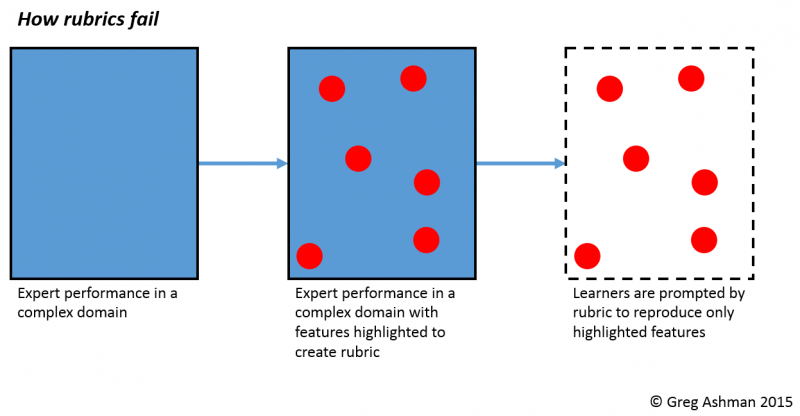Is education eating its own tail? Owen Carter reviews Ouroboros by Greg Ashman.
 Ouroboros is a very, very interesting book. The name refers to the ancient symbol of a snake eating its own tail: applied to education, it means that fads, trends and all the worst of teaching gimmickry come round time and time again, preventing true progress being made. But it also presents something positive: the idea that if something good is fed into the system, a virtuous feedback loop is created.
Ouroboros is a very, very interesting book. The name refers to the ancient symbol of a snake eating its own tail: applied to education, it means that fads, trends and all the worst of teaching gimmickry come round time and time again, preventing true progress being made. But it also presents something positive: the idea that if something good is fed into the system, a virtuous feedback loop is created.
If you’ve read any of Ashman’s blog, Filling the Pail, you’ll likely be familiar with some of his preoccupations. He argues – pretty convincingly – for what he calls ‘explicit teaching’: an approach that places a lot of emphasis on well-crafted teacher explanation, and very little on enabling students to discover things for themselves. In support of this idea we get evidence from diverse sources, ranging from cognitive science to experimental trials such as Project Follow Through and comparisons between high-performing nations in PISA results.
It’s the psychological reasoning behind this argument that I found most interesting. One of the key notions is that students tend to suffer from the Dunning-Kruger effect: they don’t know a lot, but think they do. Most learners will believe they have expertise that they don’t yet possess.
Running parallel to this is the curse of knowledge. Through their training and passage through formal education, they will tend to know a lot more about the subject they teach than their pupils. That all sounds as it should be. The problem is that this means they will consistently underestimate the ease with which new knowledge can be acquired – precisely because they have already acquired them. Solving differential equations is a walk in the park if you’ve been able to do it for a long time. Not so if you haven’t.
The argument comes to something like this: students overestimate what they know, and teachers underestimate what they know, leading to a classroom in which the true state of students’ knowledge is fairly unclear. This is one of the benefits of external testing: it gives a picture of pupils’ knowledge that is further removed from these cognitive biases.
No wonder that it sometimes seems baffling that pupils ‘just don’t get it’. Teachers can’t put themselves in pupils’ minds, and pupils can’t put them themselves in teachers’ minds.
Another important insight is about the difference between learning and performance. A bit like the way we treat rubrics, we see an expert in action, notice their performance and assume that the route to learning is through imitating the performance.

The problem with, say, asking pupils to think like scientists, is that experts and novices think differently. There’s lots of research on this, but a fascinating study that Ashman quotes investigated the differences between the way PHD physics students and undergraduates approached problems. Undergraduates tended to group together problems based on literal features: say whether the problems contained a spring, or the term ‘friction’ or ‘centre of mass’. The more expert PHD students, by contrast, seemed to ignore these surface features: they grouped problems by major physics principles, associating together, for instance, problems that involved applying Newton’s Second Law to solve them.
Basically how we think is governed by how much knowledge and understanding we have. So we need to approach pupils with the knowledge they have, not just the knowledge we would like them to have. It’s all very well to encourage students to think critically, and analyse, evaluate and enquire like mature scientists, but those terms don’t mean much if they don’t have enough knowledge to do it with.
Say I want to know ‘whether Keats’ poetry embodies the spirit of the Romantic age’. Investigating this might teach me a lot about Keats, and a lot about the context in which he wrote. From the outset I might be able to list some ideas about what I think Romanticism is. Then I could come up with ideas on both sides about whether Keats fits this. But the more I know, the more critically I can approach the question: if I know that Romantic is not a term that any of these poets ever used of themselves, I might well ask if there is even such a thing as a ‘spirit of the Romantic age’.
Such critiques underpin a lot of Ashman’s rubbishing of traditional educational truths: differentiation, engagement, designing relevant and authentic activities. And he does it very well, and writes beautifully.
Almost inevitably, the picture painted of enquiry approaches is a bit of a caricature. While ‘leave students to get on with it and see’ might once have been common (I have no idea), a lot of more enquiry-oriented practitioners now are unlikely to adopt so extreme an approach. The flipside of being so eloquently polemical is that you can end up creating straw men.
Still if you’re at all interested in teaching practice, assessment, or the science of learning, there’s an awful lot in this book to challenge, intrigue and make you examine what you thought you already know. If this sounds like something you’d like, you can buy Ouroboros here. You might also want to check out David Didau’s take on it.
Want me to review more books about education? Tweet any suggestions to @TeachingOE.